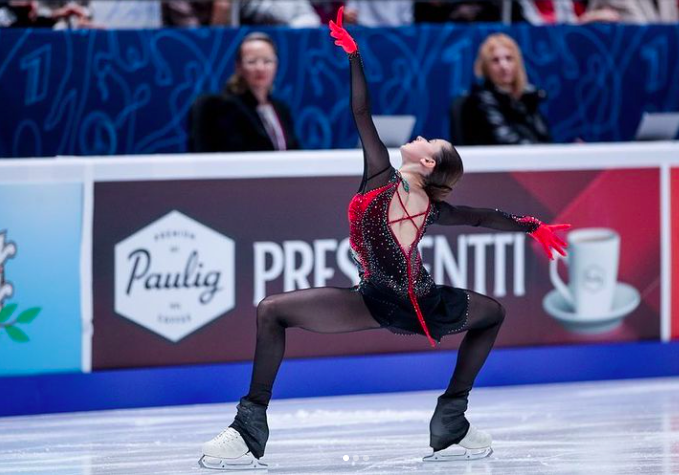Valieva’s Doping Scandal Stirs Controversy
A massive doping scandal shrouded the 2022 Winter Olympics in controversy as the International Olympic Committee (IOC) chose to allow the Russian Olympic Committee’s Kamila Valieva to continue competing in the women’s figure skating final round after the release of a failed drug test that was positive for a banned heart medication. The decision followed the release of a 40-page report drafted by an emergency three-person panel from the Court of Arbitration for Sport (CAS) stating the 15-year-old skater was not to blame for the delay in results from a drug test taken in late December. The panel pointed out that Valieva had tested negative twice since then and that the 44-day delay in results was due to a Covid-induced staffing shortage at the laboratory in Stockholm.
Furthemore, the CAS’s ruling was influenced by the fact that Valieva is a minor and is therefore subject to different rules than an adult athlete. The CAS also cited that Valieva’s test was administered two months before the competition and the testing facility failed to release the result on time. Valieva and a team of lawyers have decided to fight the International Olympic Committee during the investigation with the argument that the teenager inadvertently ingested the banned substance. The CAS panel, however, states that they have not been provided with any evidence supporting the Russian skater’s claim.
Valieva tested positive for three heart medications: Hypoxen, L-carnitine, and Trimetazidine (or TMZ), a drug that is on the World Anti-Doping Agency (WADA) prohibited list. US Anti-Doping Agency chief executive Travis Tygart commented on the case, and said “The trifecta of substances Valieva took seem to be aimed at increasing endurance, reducing fatigue, and promoting greater efficiency in using oxygen.” It is typically prescribed to older patients with heart-related conditions and helps the body use oxygen and relieve chest pain with the increased metabolism of fatty acids. Because the increase in lung capacity is said to potentially improve stamina and endurance in athletes, the WADA categorizes it as a hormone and metabolism modulator. However, experts say that there has only been a small amount of research done on the performance-enhancing effects of TMZ and that the substance might not even have a positive impact on elite athletes like Valieva. The drug is not recommended for people under 18 because its side effects include dizziness, headache, abdominal pain, and diarrhea; these could derail an athlete’s performance. A cardiologist at USC even went as far as saying that the potential positives of taking the drug for performance-enhancing purposes could be outweighed by the multitude of negative side effects.
The scandal has prompted a worldwide anti-doping movement led by the U.S. Olympic skating team. The CAS’s ongoing investigation of Valieva has subsequently led to them postponing the medal ceremony, forcing the U.S. skaters to return home empty-handed. The U.S. team’s co-captain, Evan Bates, testified to the CAS panel in hopes of forcing the International Olympic Committee to give the nine athletes their medals before they left Beijing. Bates and his teammates insisted that the issue is not necessarily the absence of a medal, but the crumbling integrity of their sport. They argued that there needs to be more action taken against all doping issues to promote clean competition. This came after a 1-hour-and-40-minute meeting with Thomas Bach, the president of the International Olympic Committee, in which the U.S. skaters lamented how they were being punished for another athlete’s mistake and the failures in the organization’s anti-doping policies.
Kamila Valieva’s case is still ongoing as outcry over the integrity in the Olympic Games and pattern of doping among athletes reaches an all-time high. Speculation swirls around the delay in her test results, her position as a minor, and the question of whether Trimetazidine would actually enhance her performance.





